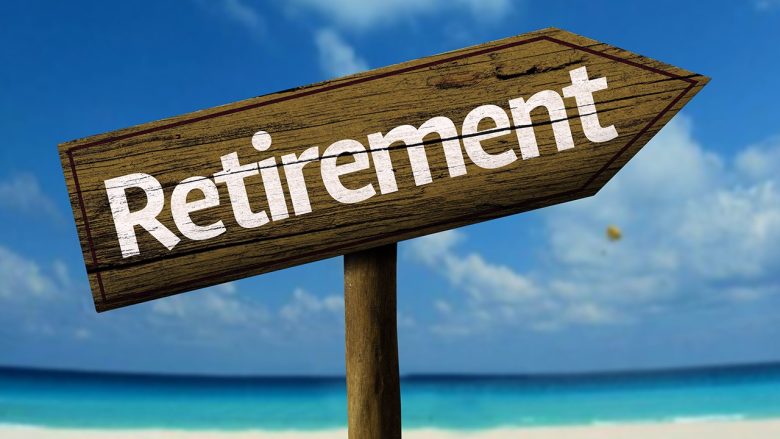Retirement planning is an important part of managing your money because it helps ensure you can live the way you want when you’re not working. To ensure you have enough money in the future, good retirement planning includes cash, investments, and long-term planning. This is an in-depth book that contains all the important information you need to enjoy a great retirement.
Learn how to plan your retirement
When you plan to retire, set retirement income goals and take the necessary steps to achieve those goals. It involves finding ways to make money, guessing the cost of items, developing a savings plan, and tracking assets and risks.
If you retire early, you have a major advantage. It gives your capital more time to grow, which is what compound interest is all about. Planning also gives you room to change your plans if your goals or financial situation change.
Advice on how to plan for a successful retirement
Find out what you need when you retire.
The first step toward a secure future is figuring out how much money you need when you retire. Think about how you live now and how you want to live when you are gone. Most experts say you need 70 to 80 percent of your salary to maintain your standard of living before you retire.
Diversify your investments
Diversification is an excellent way to manage risk. By owning stocks, bonds, and other types of securities, you can benefit from both risk and reward. Remember, the right mix for you depends on your age, goals, and willingness to take risks.
Make the most of your retirement account contributions
401(k)s, IRAs, and Roth IRAs are all great ways to save for retirement. These accounts offer you tax deductions that can help you save more for retirement. If you can, put as much money as you can into these accounts each year.
Find out how much medical care costs
As you get older, healthcare costs quickly increase. Long-term care insurance and a health savings account (HSA) can help you pay these bills. Taking good care of your health can also save you on future medical costs.
Create a long-term retirement plan
People are living longer, so it’s smart to plan for a retirement of 30 years or more. Make sure your retirement savings plan has a long-term perspective so that you don’t run out of money prematurely.
Pay off debt before you retire
When you leave, you’ll have minimal debt, which will reduce your money stress and lower your cost of living. Make a plan to pay off your credit card bills and other high-interest debt, and consider paying off your mortgage faster.
There is more than one way to make money
Relying on a single source of income in retirement can be risky. Develop multiple ways to make money, such as rental income, dividends, and pensions. This helps keep the economy stable and prevent inflation.
Stay informed and make changes as necessary
There is no ‘set it and forget it’ retirement plan. Take into account any changes in tax laws, investment options, or your financial situation. If you want to continue achieving your retirement goals, be prepared to change your plans.
Put your retirement plan into action
Seek help from a financial advisor
You may want to work with a financial advisor who can provide you with specific help tailored to your goals and financial situation. A professional can help you make difficult financial choices and ensure you stick to your retirement plan.
Monitor your portfolio and rebalance if necessary.
Review and rebalance your investments regularly to ensure they are appropriate for your risk level and when you plan to retire. As you get closer to retirement, this may mean moving your money into safer options.
Able to adapt
You must be prepared to make changes to your retirement plans if your life or finances change. Staying flexible is important to deal with the unpredictability of emotional and financial situations.
Get ready for a great retirement
Planning your retirement is a process that requires dedication, self-control, and adaptability. By using these important tips, you can lay a solid foundation for a retirement that is both financially stable and full of opportunities to enjoy the fruits of your labor. Start planning today for a better, safer future. Ultimately, careful retirement planning can give you more than just money. It gives you peace of mind. Making a plan to care for yourself and your family in the future can reduce your stress and help you focus on living your best life now and when you’re gone.
Take steps today to invest in your future and ensure you have a great retirement. Always remember that it is never too early or too late to start planning for your later years.
FAQs
1. At what age should you start planning your retirement?
The best time to start planning your retirement is as soon as possible. If you start saving in your 20s or once you start earning a steady income, you can benefit from compound interest. This also gives you more freedom to change plans over time.
2. How much money do I need to live a good life after retirement?
How much money you need to retire comfortably depends on where you live, how much you spend, and your lifestyle. A good rule of thumb is to keep your retirement income at about 70 to 80 percent of your pre-retirement income. That said, it’s important to get an estimate that’s unique to your situation.
3. Can I rely on Social Security to pay my bills when I retire?
Social Security can provide you with a basic income in retirement, but this is not always enough to easily cover all your expenses. It’s best to think of Social Security as part of your retirement plan rather than as your sole source of income in retirement.
4. What is the difference between an IRA and a 401(k)?
Many companies offer 401(k) plans as a way to save for retirement, and they often match the money you put into them. One type of retirement account is an individual retirement account (IRA). This is a bank account that people can open themselves. Both accounts have tax benefits, but the amount you can deposit and the rules for doing so differ.
5. How do I know if I have enough savings for my retirement?
It is important to regularly check your pension savings and compare them with your retirement goals. Many banks and financial planners have retirement calculators that can help you determine if you’re on the right track by looking at how much you’ve saved, how much you’ve contributed, and how your investments are performing.
6. What should I do if I don’t have enough retirement savings?
If you’re behind on saving for retirement, you may need to increase the amount you save each month, change the way you invest to earn higher returns (while still being aware of the risks), your retirement procrastinate, or find other ways to make money. to grow your savings.



